Mono in Kids: Symptoms, Causes, and Treatment Guide
When your child shows signs of extreme fatigue, a sore throat, or swollen lymph nodes, you might wonder if it's something more than just a common cold. Mononucleosis, often caused by the Epstein-Barr virus, is particularly prevalent among kids and young adults, and understanding its symptoms and causes can help you navigate this situation effectively. You'll want to know how to manage their discomfort and when to seek further medical help, as these choices can greatly impact their recovery. So, what should you look out for, and how can you best support your child during this time?
Understanding Mononucleosis
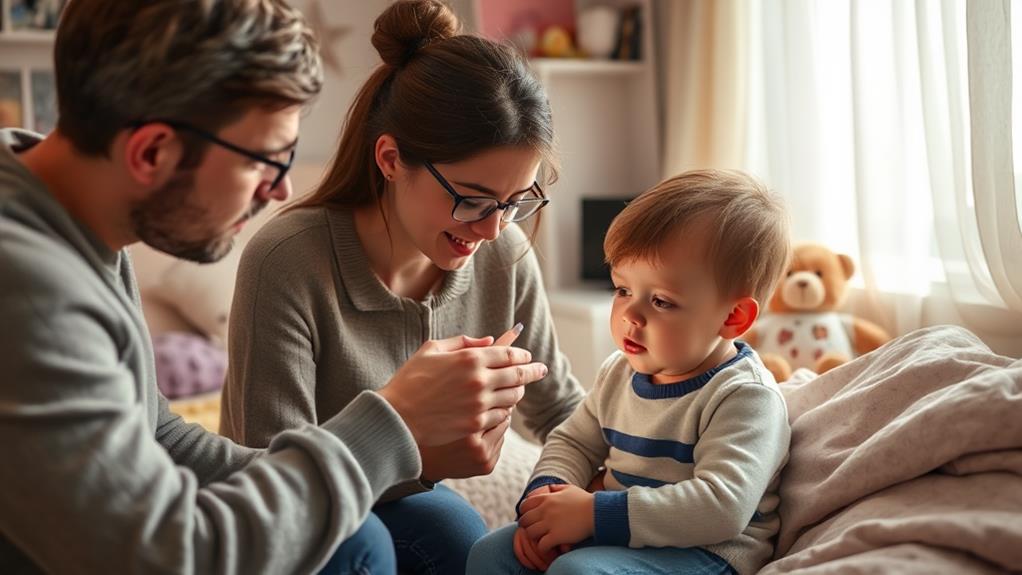
Mononucleosis, often called "mono," is a viral infection that primarily affects teenagers and young adults, although it can occur in kids too. You might've heard of it as the "kissing disease," but don't worry, you don't have to be smooching to catch it!
Mono is usually caused by the Epstein-Barr virus. It spreads through saliva, which means sharing drinks or snacks can put you at risk.
When you get mono, your body might go into full-on defense mode. You could feel super tired, like you just ran a marathon, and your throat might hurt as if you swallowed a cactus! Your lymph nodes can swell, and you may even get a fever.
It's important to take care of yourself during this time. Rest up, drink plenty of fluids, and avoid strenuous activities.
Most kids recover within a few weeks, but sometimes it can take a little longer. Just remember, while mono can be a drag, it doesn't last forever. So, hang in there!
If you think you might've mono, it's a good idea to talk to your doctor for advice and support.
Common Symptoms in Children
When kids get mono, they often show a combination of symptoms that can be quite distressing.
First off, you might notice that your child feels super tired and just wants to nap all day. That fatigue can hit like a truck! Along with that, they may have a sore throat that feels like they've swallowed a cactus. Yikes! Swollen lymph nodes in the neck are also common, making it hard for them to even turn their head comfortably.
You might see a fever pop up, too, usually around 101°F or higher. And let's not forget about those pesky headaches and body aches that just won't quit. It can feel like they've run a marathon—without even leaving the couch! Some kids even get a rash. It's not pretty, and it can add to the worry.
If your child's appetite suddenly drops, that's another red flag. They mightn't feel like eating, which can leave you scratching your head.
Causes of Mononucleosis
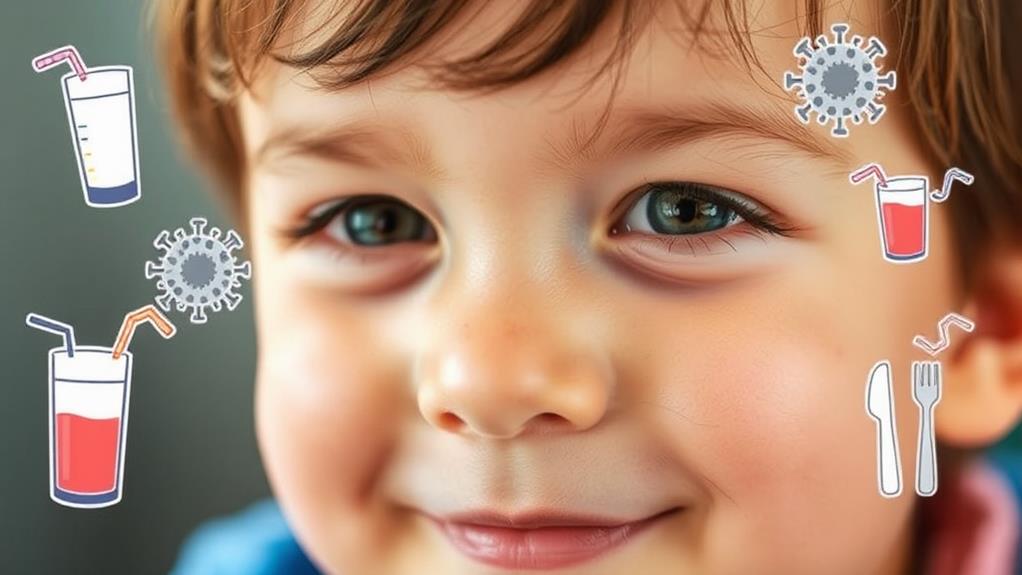
The fatigue and other symptoms you've noticed in your child often stem from a viral infection caused by the Epstein-Barr virus (EBV). This sneaky little virus is a member of the herpes family and can spread through saliva. So yes, sharing drinks or smooching on the cheek can pass it along. You've probably heard the term "kissing disease," and that's why!
Once your child gets infected, the virus settles into their body, sometimes causing no symptoms at all. But when it decides to make a move, it can lead to that tiredness, sore throat, and swollen lymph nodes you've been seeing.
Kids between the ages of 15 and 24 are most likely to get mono, but younger children can catch it too.
Besides EBV, other viruses could cause similar symptoms, but EBV is the main culprit. So, if your child's been feeling under the weather, it might just be that pesky virus making them feel like a sloth.
Keep an eye on their symptoms, and remember—rest, hydration, and comfort are key for their recovery!
Diagnosing Mononucleosis
To diagnose mono, your doctor will start by asking about symptoms and your child's medical history.
They'll probably do a physical exam, checking for those swollen lymph nodes and any signs of liver or spleen enlargement. A blood test, often called the "mono spot" test, is usually next. This test looks for antibodies that show if your child has been infected with the virus.
Just remember, it's crucial to get a proper diagnosis.
While some symptoms of mono can feel like a bad cold, they're not quite the same. So, if you suspect mono, don't hesitate to reach out to your healthcare provider. Getting the right diagnosis is the first step to helping your child feel better and back to their playful self!
Treatment Options for Kids
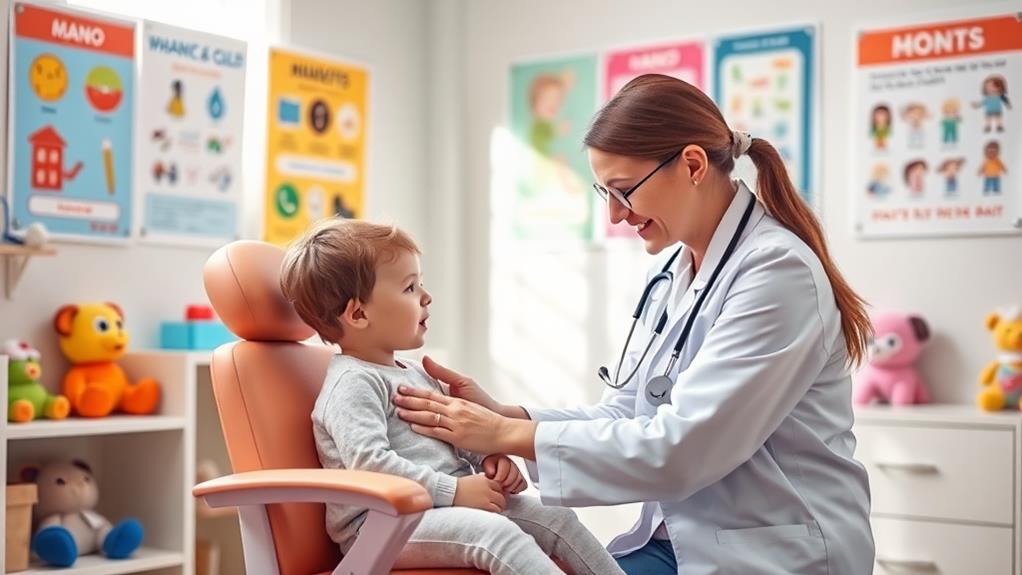
Once your child is diagnosed with mononucleosis, it's important to focus on supportive treatment to help them recover. This means giving them the care they need to feel better while their body fights off the virus.
First, make sure your child gets plenty of rest. Think of it as a superhero recharge—sleep is their secret weapon!
Encourage them to drink lots of fluids, like water and juice, to stay hydrated. This helps their body work better and can ease their sore throat. Speaking of sore throats, you can offer soft foods, like yogurt or applesauce, which are easier to swallow.
If your child has a fever or aches, over-the-counter medications, like acetaminophen or ibuprofen, can help. Just remember to follow the dosage instructions carefully.
Also, try to keep their activities low-key. It's not the time for intense soccer games or climbing trees! Gentle activities, like reading or watching movies, can keep them entertained while they heal.
With the right supportive treatment, your little one will be back to their lively self before you know it. Just hang in there—superheroes recover!
Managing Symptoms at Home
While your child is recovering from mononucleosis, managing their symptoms at home can make a significant difference in their comfort and healing.
First, encourage plenty of rest. Your child's body is working hard to fight off the virus, so naps and early bedtimes are essential.
Next, hydration is key. Make sure your child drinks lots of fluids, like water, clear soups, or herbal teas. It'll help soothe their throat and keep them refreshed.
Speaking of sore throats, popsicles or cold drinks can be a tasty way to ease that discomfort!
You can also offer over-the-counter pain relievers, like acetaminophen or ibuprofen, to help with fever and aches. Just check with your pediatrician about the right dosage.
Keeping their environment cozy is important too. A calm and quiet space can help them relax, while soft pillows and blankets can make them feel snug.
Lastly, don't forget to distract them! Engage in light activities, like reading or watching favorite shows together.
Laughter is a great medicine, so share some silly stories or jokes. Managing symptoms at home can be a team effort, making the recovery process smoother and a little more fun!
When to Seek Medical Attention
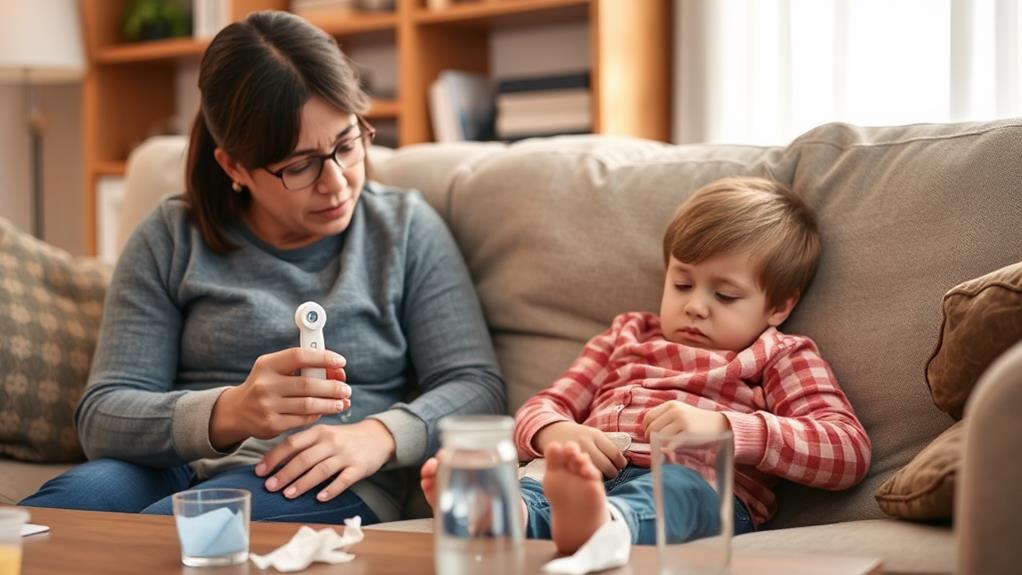
Knowing when to seek medical attention for your child with mono is essential for their recovery.
If your child has a high fever that won't budge, or if they seem extra tired and can't get out of bed, it's time to call the doctor.
You might also want to pay attention if they complain of severe sore throat pain that makes it hard to swallow or breathe.
Sometimes, mono can cause the spleen to swell, which can lead to abdominal pain.
If your child has sharp or sudden pain in their belly, don't wait—call for help!
Also, if your child shows signs of dehydration, like not drinking enough fluids, or if they're unusually cranky and not acting like themselves, your pediatrician should know.
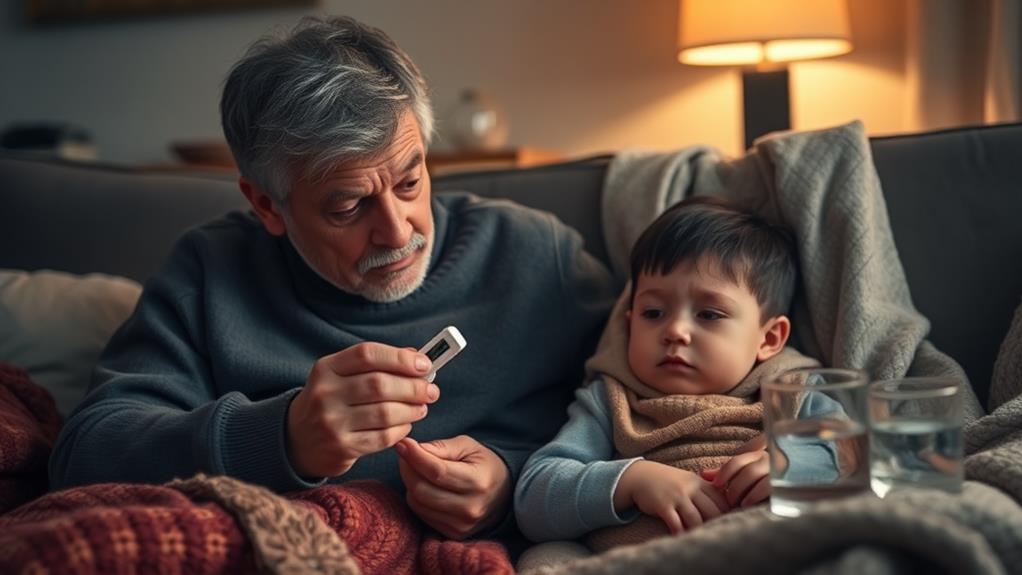
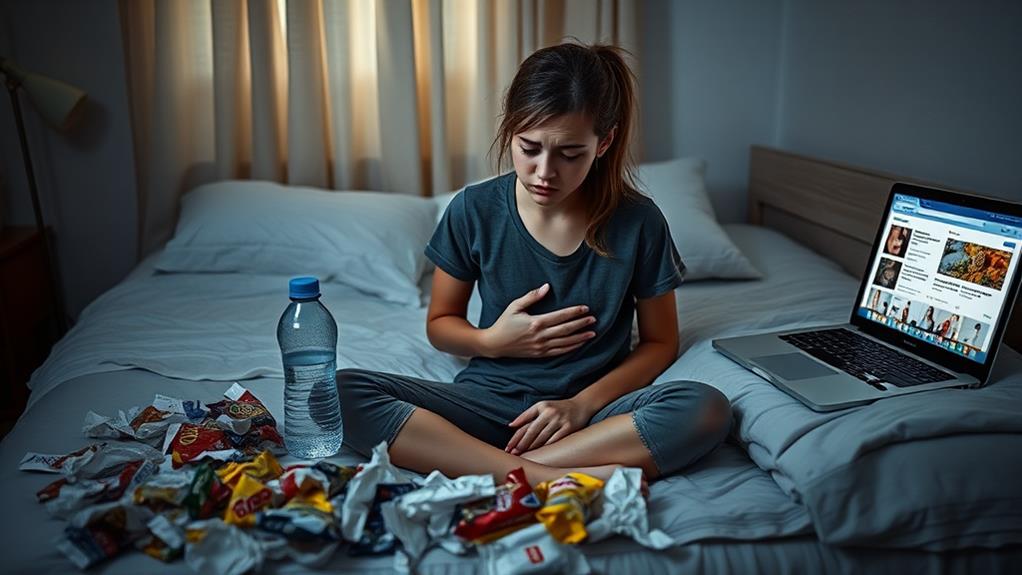
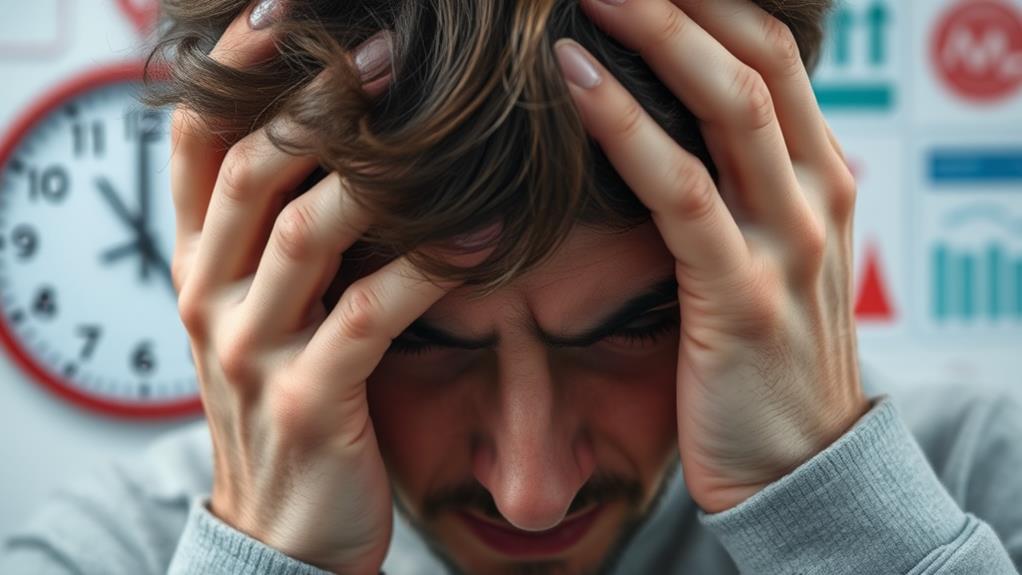










Post Comment